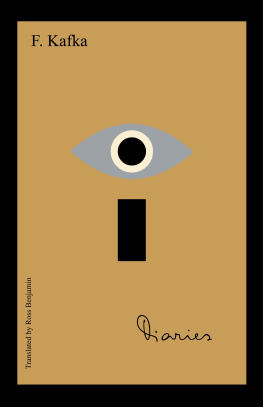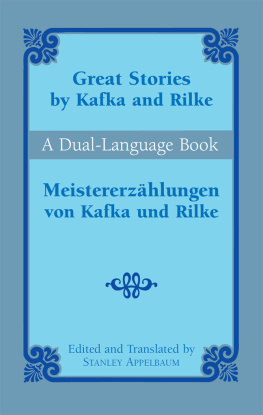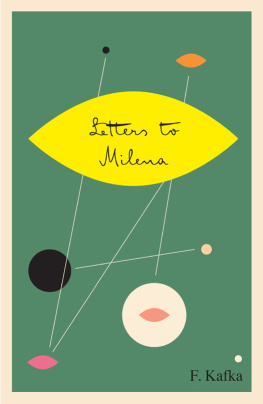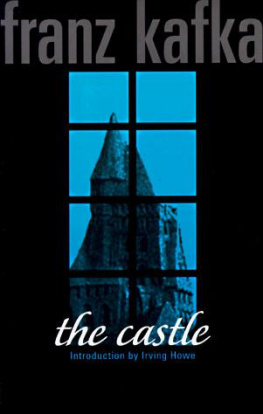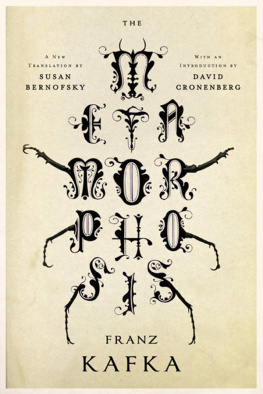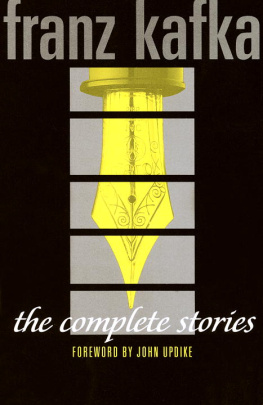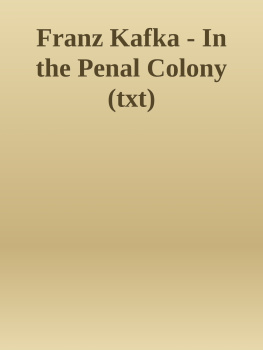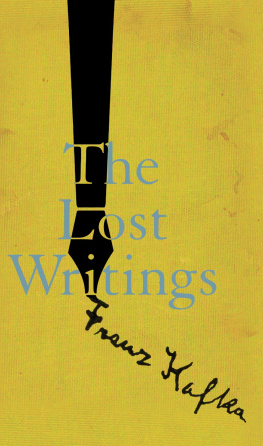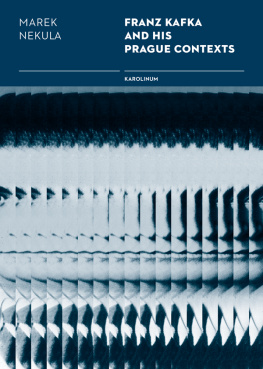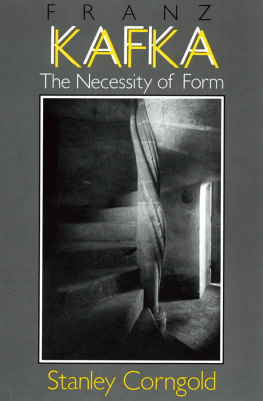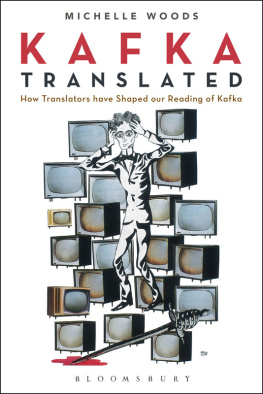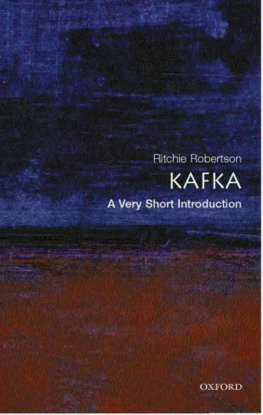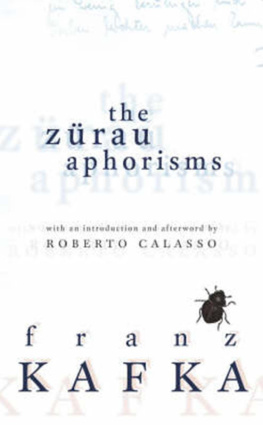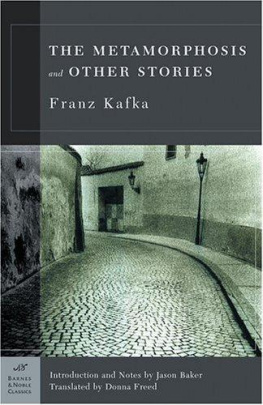Franz Kafka - The Diaries of Franz Kafka
Here you can read online Franz Kafka - The Diaries of Franz Kafka full text of the book (entire story) in english for free. Download pdf and epub, get meaning, cover and reviews about this ebook. year: 2023, publisher: Knopf Doubleday Publishing Group, genre: Detective and thriller. Description of the work, (preface) as well as reviews are available. Best literature library LitArk.com created for fans of good reading and offers a wide selection of genres:
Romance novel
Science fiction
Adventure
Detective
Science
History
Home and family
Prose
Art
Politics
Computer
Non-fiction
Religion
Business
Children
Humor
Choose a favorite category and find really read worthwhile books. Enjoy immersion in the world of imagination, feel the emotions of the characters or learn something new for yourself, make an fascinating discovery.
- Book:The Diaries of Franz Kafka
- Author:
- Publisher:Knopf Doubleday Publishing Group
- Genre:
- Year:2023
- Rating:4 / 5
- Favourites:Add to favourites
- Your mark:
- 80
- 1
- 2
- 3
- 4
- 5
The Diaries of Franz Kafka: summary, description and annotation
We offer to read an annotation, description, summary or preface (depends on what the author of the book "The Diaries of Franz Kafka" wrote himself). If you haven't found the necessary information about the book — write in the comments, we will try to find it.
The Diaries of Franz Kafka — read online for free the complete book (whole text) full work
Below is the text of the book, divided by pages. System saving the place of the last page read, allows you to conveniently read the book "The Diaries of Franz Kafka" online for free, without having to search again every time where you left off. Put a bookmark, and you can go to the page where you finished reading at any time.
Font size:
Interval:
Bookmark:
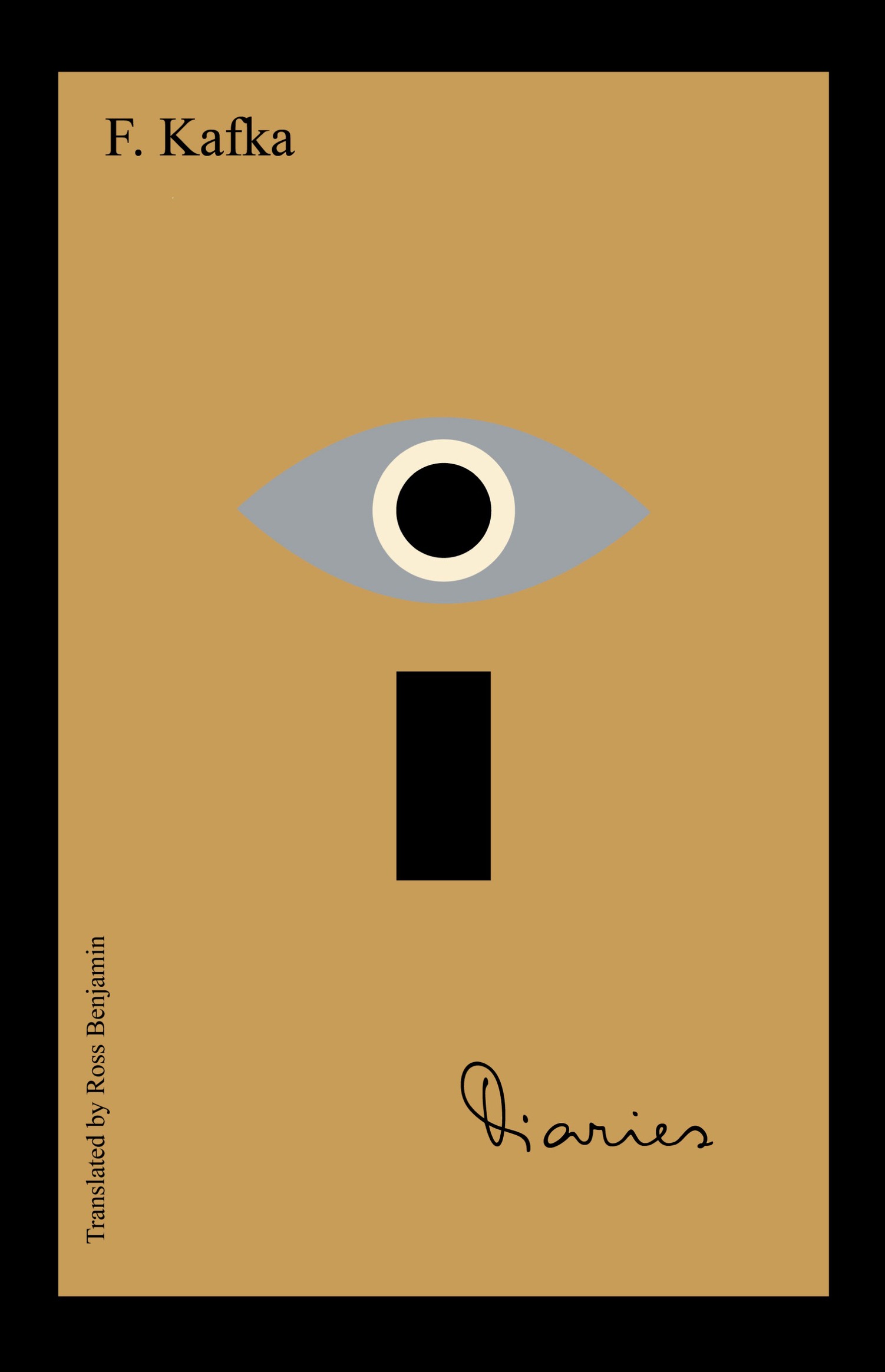
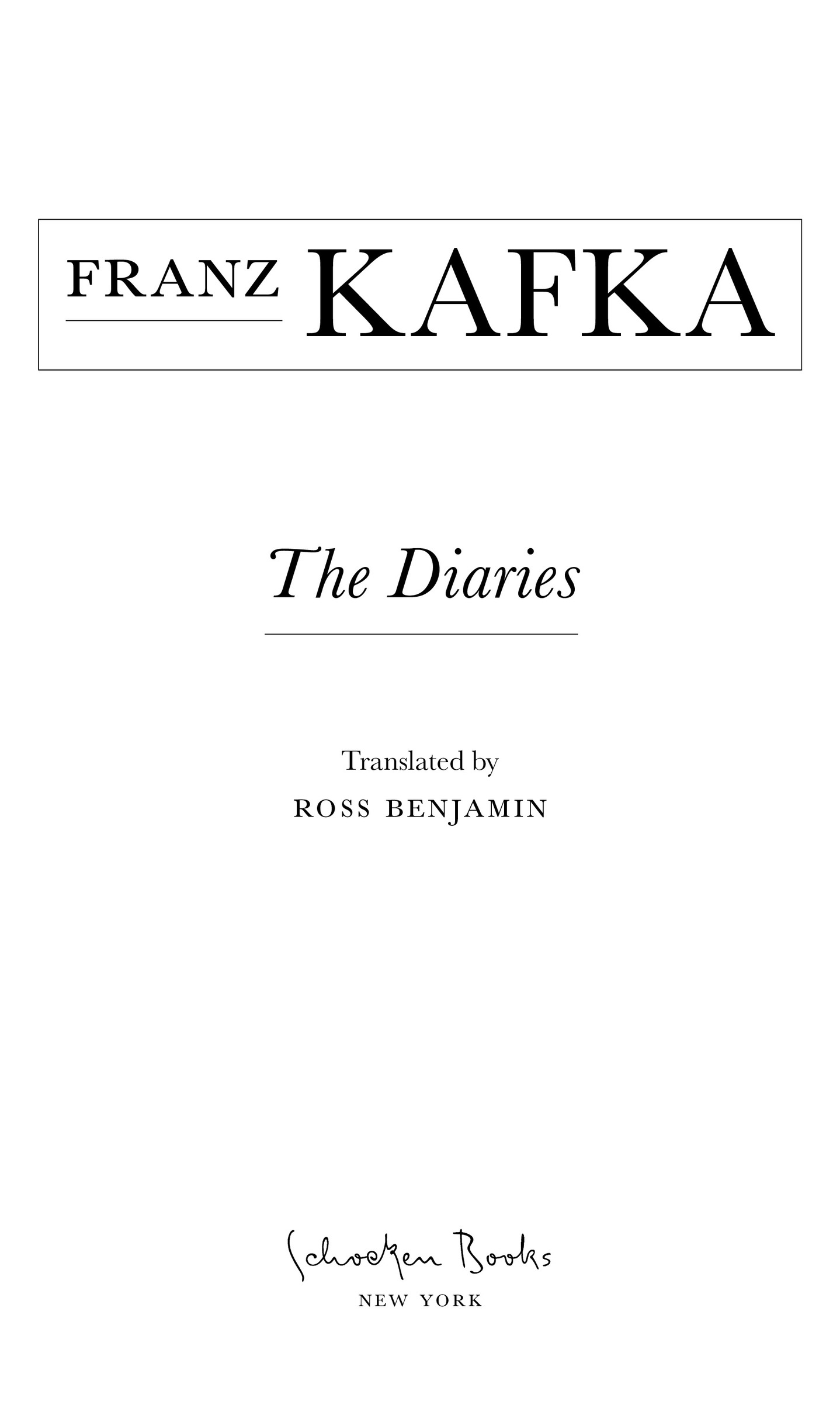
Translation copyright 2022 by Ross Benjamin
All rights reserved. Published in the United States by Schocken Books, a division of Penguin Random House LLC, New York, and distributed in Canada by Penguin Random House Canada Limited, Toronto. Originally published in Germany in two volumes as Tagebcher in der Fassung der Handschrift by S. Fischer Verlag, Frankfurt am Main, in 1990. Copyright 1990 by Schocken Books, a division of Penguin Random House LLC, New York.
Schocken Books and colophon are registered trademarks of Penguin Random House LLC.
Library of Congress Cataloguing-in-Publication Data
Names: Kafka, Franz, 18831924, author. Benjamin, Ross, translator.
Title: The diaries / Franz Kafka; translated by Ross Benjamin.
Other titles: Diaries
Description: First edition. New York: Schocken Books, 2022.
Series: The Schocken Kafka library. Includes bibliographical references and index.
Identifiers: LCCN 2022000201 (print). LCCN 2022000202 (ebook). ISBN 9780805243550 (hardcover). ISBN 9780805243567 (ebook).
Subjects: LCSH : Kafka, Franz, 18831924Diaries. Authors, Austrian20th centuryDiaries. LCGFT: Diaries.
Classification: LCC PT 2621. A 26 Z 46 2022 (print) | LCC PT 2621. A 26 (ebook) | DDC 833/.912 [ B ]dc23/eng/20220204
LC record available at https://lccn.loc.gov/2022000201
LC ebook record available at https://lccn.loc.gov/2022000202
Ebook ISBN9780805243567
www.schocken.com
Cover design by Peter Mendelsund
ep_prh_6.0_142226817_c0_r0
_142226817_
Franz Kafka (18831924) so enthralled the twentieth-century literary imagination that he came to be seen as the representative genius of the modern age. To this day an ever-expanding cosmos of secondary literature swirls around his work. At the same time, scholars have widely acknowledged that this work is too singular and elusive to be subject to any reductive interpretation. After all, how far can analytical methods be applied to fiction that borrows its logic from the liminal space between waking and dreaming? Often writing deep into the night, Kafka explored this unstable and destabilizing terrain in stories that have long been enshrined in the pantheon of modern literature. Yet his vision, idiom, and sensibility did not appear fully formed from the outset. Rather they were wrought and wrestled into being in the same arena where many writers enact the drama of linguistic self-creationin his notebooks.
Between 1909 and 1923, Kafka kept various notebooks that he called his Tagebcher, or diaries. In the pages of these notebooks, he interspersed many different kinds of writing: entries recording daily events, reflections, and observations; literary sketches; drafts of letters, reviews, and other texts; accounts of dreams; autobiographical recollections; impressions, synopses, and critical considerations of books, plays, and other cultural events and phenomena; descriptions of people with whom he was acquainted or crossed paths, particularly their physical appearances, gestures, clothing, habits of speech and communication; examinations of his own bodily states and symptoms, moods and perceptions, inner conflicts and predicaments; outbursts of anguish and bouts of self-torment; outlines for planned works; excerpts from his reading material; snapshots of his urban environment, his family and office spheres, and the social and cultural milieus in which he moved; sporadic jottings; enigmatic aphorisms; and all-but-finished prose pieces and stories.
In these disparate writings the line between life and literature cannot be sharply drawn. Often it cannot be determined in a given passage whether Kafka is registering a private experience, crafting fiction, or transforming the one into the other. He worked on his diary entries with unvarying literary intensity, revising, adding, cutting, correcting. His impulse to give artistic shape to what he wrote apparently made no distinctions. Kafkas diaries therefore have far more than biographical value. While they illuminate a great deal about his world as a German-speaking Jewish writer in Pragueand as a son, a brother, a friend, a lover, an employee, a reader, a patron of theatrical and other cultural venues, a frequenter of coffeehouses and other establishments, an observer of and participant in contemporary trends and movements, an occasional travelerthey also go beyond our interest in the man and his time: On every page they reveal the writer at work.
My translation of Kafkas diaries offers English-speaking readers for the first time the complete text on the basis of the German critical edition published in 1990 by S. Fischer Verlag and edited by Hans-Gerd Koch. The sole previous English version, first published in 194849, is based on an outdated, bowdlerized German edition prepared by Kafkas literary executor Max Brod, who had been Kafkas closest friend, had recognized and encouraged his gifts early on, andsince Brod was the more prolific, better-known, and better-connected writer of the twohad been instrumental in the publication and promotion of Kafkas work during his lifetime. The critical edition not only restores the unexpurgated text of the diaries but also redresses other significant inadequacies, inaccuracies, and distortions of the Brod edition.
Besides omitting or altering the names of and details about people still living at the time of the books publication, Brod excised texts that could be considered literary works and indiscriminately suppressed passages of a sexual nature. In particular, he removed anything with a tinge of homoeroticism. He also manipulated the diaries in several places that presumably seemed to him to reflect unfavorably on himself or Kafka. Recent scholarship, such as Saul Friedlnders Franz Kafka: The Poet of Shame and Guilt, has drawn on the deleted passages to explore new avenues of interpretation. The emergence of fresh, provocative research on writings nowhere to be found in English suggests that the translation of the uncensored diaries is overdue.
By following the critical edition, my translation not only provides substantial new content but also reproduces the form in which Kafka wrote the diary entries. Unlike the Brod edition, which imposed an artificial chronology on the entries, the critical edition retains the sequence as it appears in the notebooks, because Kafka went back and forth between several of them at the same time, without dating every piece of writing. With this translation, English-speaking readers thus have at their disposal a faithful reconstruction in printed form of Kafkas handwritten diary entries, giving them insight into his praxis.
This sense of getting a glimpse into Kafkas workshop is enhanced by certain rough edges in the original manuscripts that the critical edition deliberately refrains from smoothing out, including fragments, however truncated, cryptic, or seemingly marginal; nonstandard and omitted punctuation; orthographic errors, unorthodoxies, and inconsistencies; occasionally awkward, convoluted, and even mangled syntax; repetitions; abbreviations; contractions; regionalisms; slips of the pen; and other linguistic idiosyncrasies and departures from conventional High German. I have attempted to preserve such elements wherever possible in my translation in an effort to give English-speaking readers a feel for Kafkas writing as he set it down on the page.
Font size:
Interval:
Bookmark:
Similar books «The Diaries of Franz Kafka»
Look at similar books to The Diaries of Franz Kafka. We have selected literature similar in name and meaning in the hope of providing readers with more options to find new, interesting, not yet read works.
Discussion, reviews of the book The Diaries of Franz Kafka and just readers' own opinions. Leave your comments, write what you think about the work, its meaning or the main characters. Specify what exactly you liked and what you didn't like, and why you think so.

